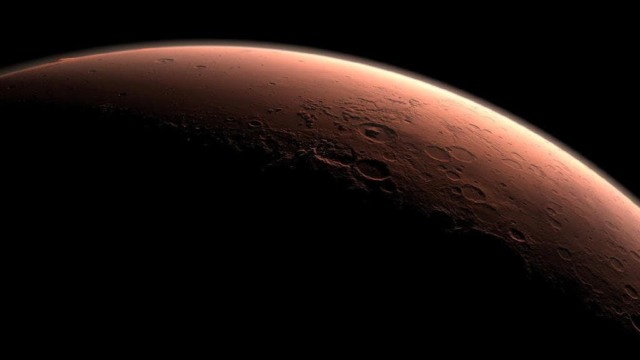You can now check the daily weather on Mars. Science fucking rules, no?

Thanks to NASA’s Insight Lander, we can now check the daily weather on Mars. While it may seem a bit superfluous, it’s a reminder that we out here doing dope shit in space.
Fortune:
Think it’s cold where you are today? Trust us: It’s a lot worse on Mars.
While much of the nation is in the grips of a major winter storm that’s snarling air traffic, closing offices, and canceling school, Mars will likely only hit the single digits today, and plunge to -130 or below tonight.
Elon Musk might want to bring a heavy coat when he moves there.
NASA has begun making daily weather reports from Mars available to the general public, with data supplied from the Insight lander. It’s not exactly up to the minute (reports appear to be delayed by two or three days), but it’s a good way for weather enthusiasts to keep up with the meteorological comings and goings of the red planet.
The most recent readings, from Feb. 17, show a high of 2 degrees and a low of -138 degrees Fahrenheit. That’s a bit of a cold front, compared to six days prior when it got up a balmy 15 degrees. (By the way, with the average wind speed of 12 mph, that brings the wind chill range of Mars on Sunday to between -27 and -212 degrees Fahrenheit.)
More disturbing: That’s about as warm as it gets on Mars right now. The data is being gathered at Elysium Planitia, a flat, smooth plain near Mars’ equator.
InSight is gathering the data with a number of sensors that constantly monitor Martian weather data. (Days on Mars last 24 hours, 39 minutes and 35 seconds.) The reports will continue to be sent to earth for the next two years, giving scientists (and Martian meteorologists) a better understanding of weather patterns on the planet.
Researchers also hope to get a better understanding of storms on the planet, learning how much wind it takes to lift dust in the planet’s atmosphere.
“It gives you the sense of visiting an alien place,” said Don Banfield of Cornell University, in Ithaca, N.Y., who leads InSight’s weather science. “Mars has familiar atmospheric phenomena that are still quite different than those on Earth.”



